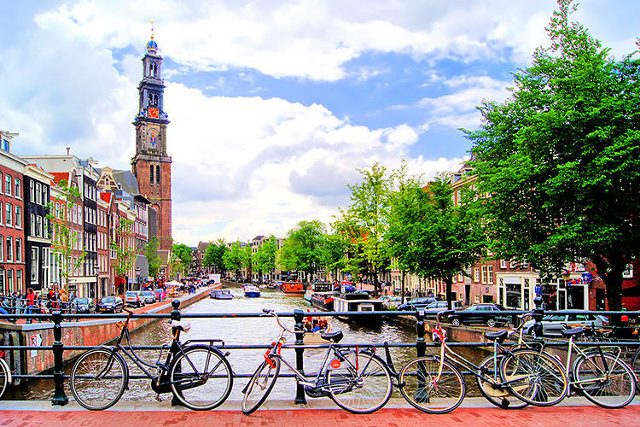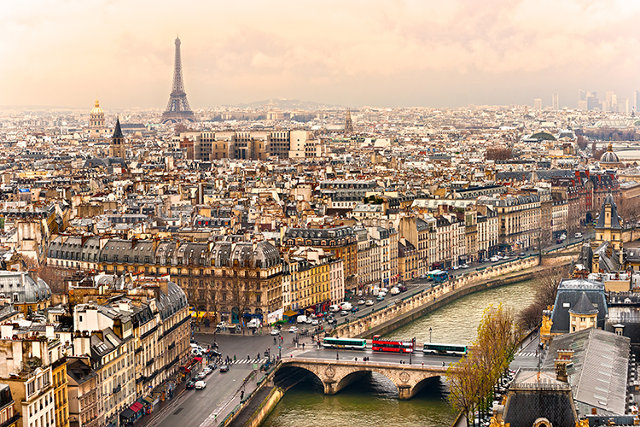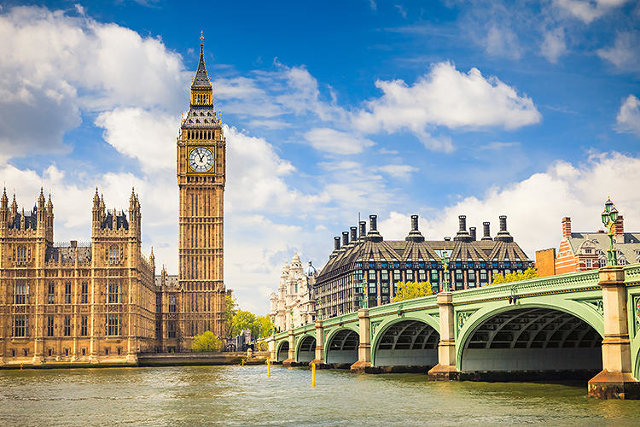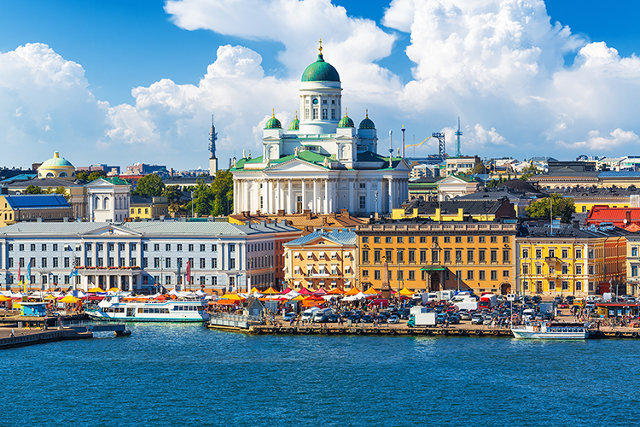But, as I wrote in our rankings of North America's smartest cities, our urban centers "demand 21st-century solutions to accommodate their growing populations in ways that not only maintain the quality of life, but also improve it. In short, smart cities are innovative cities."
Without further ado, here is the top 10 smart cities for Europe in 2013 (and here's more about how we ranked them).
1: Copenhagen
Notching top spot for the second year in a row Copenhagen has established a reputation as the leading green city across the globe. Copenhagen led the Siemens Green City Index for Europe and has also been selected as the European Green Capital for 2014. And with good reason. Copenhagen has one of the lowest carbon footprints/capita in the world (less than two tons/capita). Copenhagen also has the most ambitious carbon reduction plan of any major city in the world. They aspire to achieve carbon neutrality by 2025. That may sound a ways away but that is only 12 years from now.In order to achieve such an ambitious goal, the city has established hardcore targets including energy efficiency and renewable objectives, green building standards (all new buildings to be carbon neutral by 2020), and increased transit access to name a few.
Of course, our readers are well aware of the impressive cycling rates in the city-approximately 40% of all commutes are conducted by bike. The city also recently collaborated with MIT to develop a smart bike equipped with sensors to deliver to provide real-time info to not only the rider but also to administrators for open data aggregation on issues of air contamination and traffic congestion.
2: Amsterdam
Like Copenhagen the cycling rates here are off the charts. In fact, Amsterdam may be the only city in the world that has more problems with pedestrian and cycling traffic congestion than vehicle congestion. 67% of all trips are done by cycling or walking. In fact, on a daily basis there are 10,000 bikes parked anywhere a space can be found adjacent to the central train station.
In recent years, Amsterdam has stepped up its pace to be a leading smart city. Amsterdam Smart City is a public private partnership focused on using the city as an urban laboratory for the use of open data, new mobility solutions and ultimately improved quality of life for all residents and visitors. The collaboration has already supported more than 40 smart city projects ranging from smart parking to the development of home energy storage for integration with a smart grid.
3: Vienna
Vienna has long been known as having a very high quality of life, but it is a city that hasn’t rested on its quality reputation. Vienna has a sizable range of smart cities activities and a planning department, led by Thomas Madreiter, that gets it.In fact Vienna recently created a public private entity, TINA Vienna which is tasked with co-developing smart city strategies and solutions for the city. They gave me a document which summarizes more than 100 smart cities projects being developed throughout the city. One cool project is the so-called “Citizen Solar Power Plant." With a goal of obtaining 50% of their energy from renewables by 2030, the city partnered with the local energy provider, Wien Energy, they developed a crowd-funding model whereby individual citizens can buy half or whole panels and receive a guaranteed return of 3.1% annually.
Vienna is also testing out a range of electric mobility solutions from expanding their charging network from 103 to 440 stations by 2015 to testing EV carsharing and electric bike rentals. Another important innovation has been in rezoning dense neighborhoods allowing for zero-parking residential buildings. Residents in these communities commit to not owning a personal vehicle.
Finally, Vienna is renovating a 40 hectare former slaughterhouse district and turning it into a much smarter use: an innovation district focused on media science and technology. By 2016, the city expects 15,000 people to working on startups in the Neu Marx Quarter district.
4: Barcelona
Barcelona is a cosmopolitan city known for its sun, architecture, and lively streets. Yet, Barcelona has been building a rather impressive portfolio of smart city initiatives over recent years. The city has taken a unique position of not only advancing its own initiatives, but trying to provide support for the global smart cities movement. This has been manifested in a few key initiatives. One, Barcelona holds the premier global event for smart cities stakeholders, the Smart Cities Expo World Congress. Pilar Conesa, the city’s former chief technology officer, is the director of the congress, and with her support, Barcelona has actually expanded this initiative to other parts of the world. This year, they co-hosted a smart cities expo in Bogota to serve the Latin American region. Barcelona is the driver behind the City Protocol initiative which seeks to connect global cities in pilot projects to address common challenges.But for those living in Barcelona (or visiting) there is a lot going on in this space. Barcelona was an early player in testing e-mobility. They have an excellent bike-sharing project with more than 6,000 bikes, although last I visited, only residents could use them. Barcelona has also been testing all kinds of sensors on everything from noise and air contamination to traffic congestion and even waste management. Barcelona’s 22@ innovation district is also an impressive mix of smart urban planning and entrepreneurial innovation. This sector of the city has been transformed into an innovation home attracting local and international entrepreneurs to set up shop. The district has been so successful that it has inspired cities like Boston and Buenos Aires to follow suit. With all of their innovations and strong quality of life, perhaps it is no surprise that the life expectancy in Barcelona is among the highest of cities I have studied (83 years).
5: Paris
Paris, most known for its fantastic museums and of course the Eiffel Tower, Paris has become a pioneer in the smart cities arena. Their most impressive initiatives have been in their complete embrace of shared mobility. Paris has led the world in their expansive and widely used bikesharing network, Vélib'. Currently, the system has more than 20,000 bikes and 1,800 bikes throughout the city. Evidence suggests that Velib has led to a 5% reduction in vehicle congestion in the city. Not to be outdone, the city partnered with Bolloré to create one of the world’s first and most expansive EV carsharing programs. Launched in 2011, Autolib will soon have 3,000 EVs in its carsharing fleet.
6: Stockholm
Stockholm has a deservedly green reputation. In fact, about 40% of its land mass is dedicated to green space. Stockholm was rated #2 in Siemens Green City Index. In 2010, Stockholm was the first city to be awarded the EU Green Capital status. Stockholm residents are also amongst the highest per capita users of the Stockholm Metro system. Like its Scandinavian peer, Copenhagen, Stockholm also aspires to become carbon neutral, by 2050 instead of 2025. Due to congestion management including urban tolling and pollution controls, Stockholm is the only global city to meet stringent the World Health Organization’s recommended air contaminant standards. Stockholm also can boast about its 800 kilometers of cycling paths.It’s not all about being green. Stockholm has also received top marks for its commitment to digital governance. Out of 100 global capitals surveyed by Rutgers University, Stockholm was rated 7th and scored 1st amongst cities for its commitment to data privacy and security for citizens. The Stockholm Royal Seaside (SRS) urban regeneration project has also become a test bed for new information and communication technologies (ICTs) designed to improve the quality of life, grow the local economy and help Stockholm remain a green leader in the region.
7: London
Not surprisingly, London earned first place in the smart economy category. It has long been considered the financial capital of Europe, but it has also emerged as a leader in entrepreneurship. The Startup Genome project rated London the 7th best entrepreneurial ecosystem, number one in Europe.
8: Hamburg
Hamburg is the second largest city in Germany and the first of two to make the top 10 ranking this year. Like a few others on this list, Hamburg also was awarded the European Green Capital designation in 2011. Hamburg also offers a high standard of living having been ranked 17th globally by Mercer in 2012 and eighth globally by Numbeo.In recent years, Hamburg has embarked on widescale transformation. At 157 hectares, HafenCity (Harbor City) is Europe’s largest urban regeneration project. When completed in 2025, this roughly $14 billion project will house a university, a port, and lots of mixed-use residential and commercial development connected with excellent, green transit.
9: Berlin
Berlin has a lot going for it as well. A concept closely tied to smart cities is the creative class work led by famed researcher Richard Florida. The evidence suggests that successful cities of the future will be those that are able to attract and retain the creative class who will lead urban renewal and economic growth through innovation and entrepreneurship and by supporting a vibrant cultural scene. Berlin has that in spades.Enrique Moretti said it better than I can, in his recent book, The New Geography of Jobs: “Berlin’s well-established progressive attitudes, gritty but interesting architecture, and tormented history inspire a feeling of experimentation ... two zoos, three major opera houses, seven symphony orchestras, and scores of museums ... Walking along the beautiful streets of the historic downtown, you cannot escape the impression that this unique mix of creativity and high quality of life is hard to surpass ...”
10: Helsinki

Oslo, Brussels, and Frankfurt earned honorable mention for 2013.
source: http://www.fastcoexist.com/3024721/the-10-smartest-cities-in-europe?goback=.gde_73311_member_5830952359269793796#2
No comments:
Post a Comment